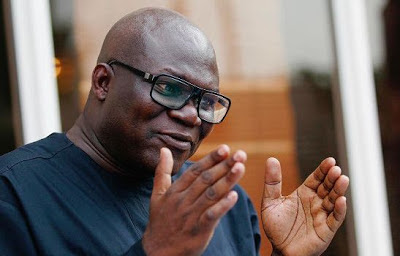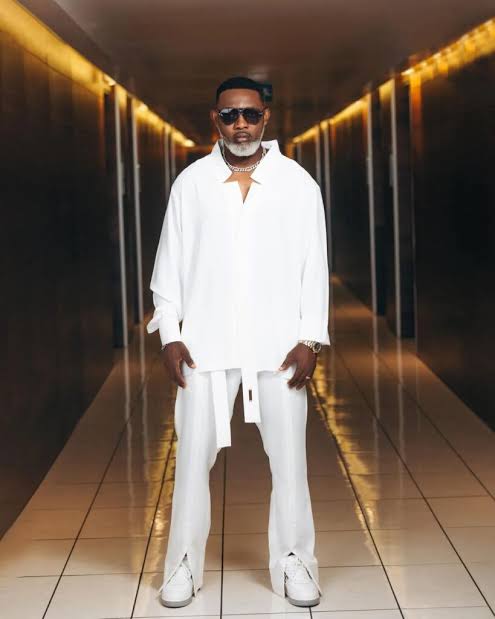My favourite end-of-the-year quote, which I have shared with many others, is the following passage from Chapter 3 of the inimitable Chinua Achebe’s Things Falls Apart, a novel of monumental, evergreen relevance, translated into over 50 languages, a product of pure genius, a milestone in world literature. Achebe wrote:
“…The year that Okonkwo took eight hundred seed yams from Nwakibie was the worst year in living memory. Nothing happened at its proper time; it was either too early or too late. It seemed as if the world had gone mad. The first rains were late and when they came, lasted only a brief moment … The drought continued for eight market weeks and the yams were killed. The year had gone mad. When the rains finally returned, they fell as it had never fallen before. Trees were uprooted and deep gorges appeared everywhere.
That year, the harvest was sad, like a funeral and many farmers wept as they dug up the miserable and rotting yams. One man tied his cloth to a tree branch and hanged himself. Okonkwo remembered that tragic year with a cold shiver throughout the rest of his life. It always surprised him when he thought about it later that he did not sink under the load of despair. He knew he was a fierce fighter, but that year had been enough to break the heart of a lion. Since I survived that year,” he always said, “I shall survive anything.”
Chinua Acbebe, the master story-teller wrote Things Fall Apart in 1957. He was just 27. Today, his words ring true. His narrative summarizes what we have been through in the year 2020. Writers are prophets. They see ahead. They map the trajectory of human experience even before it happens. The year 2020, better known as the year that was, indeed went mad. In terms of harvest, there was very little to talk about. Not yams sprouting from farmlands, but the negation of everything by a pathogen known as COVID-19 which left our world in dire straits. The last time the world witnessed a similar tragedy was in 1918-1920. That was the Spanish Flu. It lasted for two years and left a devastating imprint. We are sadly back to that past 100 years later. Across the world, from Europe to Antarctica, over one million people have died. Over 81 million persons have been infected. Many more will die, as the virus mutates and demonstrates a capacity equivalent to evil in extreme proportions. Indeed as the sage wrote, If we survive this, “we shall survive anything”. The year 2020 is the perfect “annus horribilis.” It is not a year “on which we shall look back with undiluted pleasure”.
It was the year that everything failed. Marriages collapsed. Businesses failed. The world’s demand and supply chain was disrupted. Man was humbled and humanity tried to catch up with an existential accident. The limits of science was tested. The idea of community was redefined, as human beings were forced to stay in their own natural enclaves, and avoid each other. This was the spectacular year when even grandparents were advised to stay away from their own children. Hospitals were overstretched. The entire world became an isolation centre. The words: physical distancing, social distancing, masks, hygiene, guidelines, protocols, task force, leadership, yes, leadership, and responsibility became the most famous words of the year.
The cemetery is a public place. It became even more popular in the year 2020. It was indeed an unusual year of paradoxes. Hi-Tech owners and investors made big money, so did Big-Pharmaceutical companies and so did the undertakers and funeral homes who made a fortune from the harvest of deaths. In our country, Nigeria, there was another kind of harvest, which added to the people’s misery and pain. Kidnappings. Banditry. The failure of the Naira. The collapse of the oil and gas sector. The madness of the people who in the face of COVID-19 chose to be skeptical, saved ironically by the fact that the disease was not as terrible as it was in other continents. The economy of course failed also. Nigeria slipped into a second recession in five years. Many lost their jobs. It was a sad year in all sectors, more or less. And it was the year when Nigerian youths rebelled against police brutality and bad governance.
We lament but we must also look at the other side of the picture: What lessons have we learnt and how can those lessons help us in the years to come? As the year 2020 ends, we are looking forward to a New Year. And somehow, everyone thinks that in 2021 COVID-19 will disappear. But not quite. The year 2021 looks very much like the year of the Vaccine and the politics of vaccination. Getting the people to take the vaccine is likely to be a big challenge. Going forward, I recall a few lessons that we may have learnt.
Number One: Could anyone have ever imagined that we would give up some of our usual habits as human beings? All of a sudden the year 2020, showed us that if we do not shake hands, hug each other, exchange intimate social affections, we would not die. I do not, as the year ends, remember the last time I hugged anyone or shook hands with a friend. A handshake was once a symbol and expression of brotherhood. The year of the virus made that impossible as we all had to mask up, and observe physical and social distancing. Here we are at the end of the year and so much has changed in terms of how we relate to other people. Someone was telling me the other day that we are now in the Harmattan season, or put more correctly, the flu season. But you try and sneeze at this time. Or cough. Every sneeze or cough is considered a sign of Corona Virus. I know persons who go about with a can of aerosol spray in their bags. You sneeze. You get sprayed for constituting yourself into a threat to public health. A lady that I know, will spray Aerosol on you from head to toe and tell you: “ma ko bami jare!” Before the year 2020, it was normal to sneeze and cough. People will tell you: “God bless you.” Now, that has become a crime. Nobody asks God to bless you. They look at you with what Nigerians call “corner-eye”.
Number Two: Nigerians love parties. But in the year 2020, it became a crime also to attend parties, wear aso ebi, and party all day long. I have bags of traditional party attires, agbada and all sorts, but this year, I have not opened any of those bags. There was no need going everywhere. We were told to keep safe and stay at home. Can anyone ever imagine that a year would pass like that without all the communal parties? Some people defied the protocols, year 2020 was not like any other year. But some of us obeyed the government. It was quite clear at some point that even persons who followed the directive that everyone should #take-responsibility were not spared by the virus. The high and mighty died. The most talented in our community died. COVID-19 was so egalitarian, it did not respect anybody or national boundaries.
Number Three: One of my teachers, many years ago, in a 400 level course titled “Theatre and Mankind” told us that man considers himself the most wondrous being on earth and regards himself as Master of the Universe, but repeatedly, man realizes that he is really not as important as he projects himself to be. Again and again, nature humbles him. The environment reminds him that he is not a Master but a gnat. The more this happens, the more man struggles to master the Cosmos and it is in that eternal struggle that we find the substance of epistemology and wisdom, and human drama. This is the story of our lives, and it was played out, poignantly, in the year 2020. In that year, that now ends, we were confronted with the uncertainty and the vulnerability of our lives. We are now at a point where scientists are saying they have found a vaccine. The drama of 2020 was that of man’s conflict with a pathogen, and as we were taught, this is just the beginning of another end. Man’s place in creation is that of Sisyphus and Atlas. If anyone believes that our struggle is over, he or she misses the point.
Number Four: It was a year we were told to stay away from one another and that taught us a lesson about how interconnected and interdependent we all are in a real sense. And of course the freedoms that we often take for granted became more precious than we ever considered. We were asked to stay at home, lock down, and avoid others. Even students could not go to school. We were required to bear responsibility for the health and well-being of others. It was a big issue that we all needed each other to survive, and if you were infected, you were told not to risk the possibility of infecting the other person. That was a big lesson in human solidarity. But it was tough. In times of pain and despair, the natural instinct is for people to reach out to each other, stick together as family, and seek help. In the year 2020, we were told to change the way we have always lived so we could remain alive. In Africa and Nigeria, the people took that for granted, but now that there is a second wave, we can only hope that the people will learn and not submit to conspiracy theories or the thinking that Corona virus is a big man’s disease which it is not.
Number Five: And still on how connected we are as human beings and how Corona Virus advances the struggle for equality, it became clear in the year 2020, that health is wealth, and that a failed healthcare system such as exists in many African countries would affect everyone. The African rich class had this habit of running abroad each time they fell ill; headache, ear-ache, indigestion, diarrhoea, even malaria. But in 2020, that became a suicidal option. Our leaders were taught the lesson that they have a responsibility to develop and strengthen the health systems in their own countries. For reasons not yet fully analysed, the African continent did not experience a corona virus blow out. This was the surprising miracle of the year considering the behaviour of the people, the misconduct of African governments and the reign of superstition from Tanzania to Burundi, Ghana and Nigeria.
Number Six: The free market system flourished ironically and China, where the virus sprouted from became the biggest economic beneficiary. Vaccine nationalism flourished counterpoised by vaccine hesitancy, two instructive phrases of the moment. We are confronted, in the face of the Virus, with the urgent need for new global narratives.
Number Seven: Leadership. The year 2020 showed that leadership matters. We saw through the year, good and bad leaders in terms of how they managed the COVID-19 challenge. Good leaders help society. Bad leaders punish and frustrate the people.
Number Eight: Our world of work has changed forever. Before the disaster that was 2020 happened, we all enjoyed the thrill of the daily commute to and from our work places. Even when we spent hours on traffic-congested roads, we loved it. In 2020, we were told to stay at home and work from home. And just like that: the world of work changed forever, with analysts telling us that human beings tend to be more productive when they work in isolation, from home. Tech companies have gained a lot. Stock markets have appreciated. Corona Virus may have robbed us of aspects of our lives, but it has also shown us new possibilities. What does tomorrow hold, then?
I have no idea. I am not too sure anyone can answer that question. What we know is that human beings are capable of new discoveries in the face of pain, suffering and tragedy. And so it has been with the year 2020. So, what do we hold on to? Hope, I guess, the oxygen of human existence.
























Leave a comment